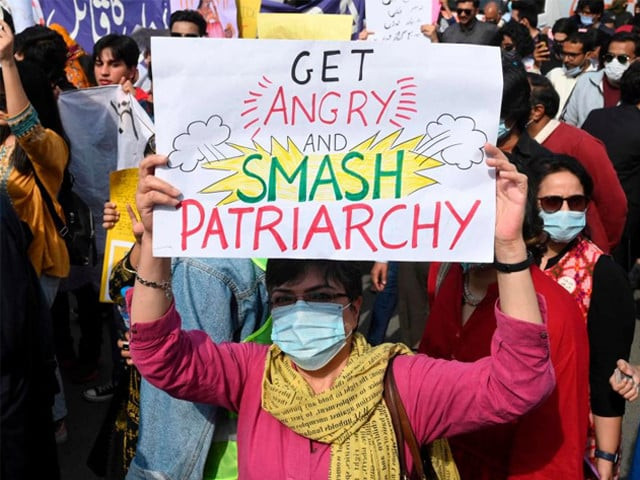“Kahani sunno haan zabanni sunno....”
Singer Kaifi Khalil was mesmerising the whole crowd with his magical voice at the recently held Karachi Eat festival when suddenly some vile men bashed the doors in, entered the festival premises, interrupted the musical performance and started harassing women. As a result, the joyous event ended up in complete chaos.
This is just another adjunct to the thousands of stories revealing the patriarchal mindset, owing to Pakistan's poor ethical and moral education, which has been prevailing for decades. Academic education only yields fruitful results if supplemented with moral education. Ethical and moral values can be taught at schools, but these values can only be adopted through pragmatic experiences. Parents, with whom the kids spend most of their lives, are the primary role models who inculcate their habits into their offspring and are the first teachers.
When it comes to the personality development of the growing child, the role of the mother is tantamount to the university of the house, whereas the father acquires the position of the supportive pillars upon which the university keeps on relying to provide. Taking this analogy, when a husband mistreats his wife or restricts her from progressing, the university falls, and this destruction negatively impacts the growing child under the rubble of moral education. Mostly, the men who mistreat women, reprimand them and relegate them must have witnessed the same immoral behaviour either in their own households or in their surroundings.
In a patriarchal society, a woman should be killed if she fails to “guard her honour”. The setters of such self-tailored criteria for gauging women's dignity are the men who tend to justify this heinous act in the name of Islam while forgetting that the Holy Prophet (PBUH) forbade killing women and children even in legitimate wars. His generous behaviour towards his wives elucidates his sympathy and respect towards women. Taking an excerpt from his last sermon, the Holy Prophet (PBUH) advised men to ‘take care of their women as they are their responsibility and Allah (SWT) holds you accountable for taking care and fulfilling your responsibilities’. He had always shown immense love and care for all his children, especially his daughters. He used to call his youngest daughter Hazrat Fatima (RA) “the joy of his heart”.
During his time, women used to enjoy more freedom than they do today. In the era of the second caliphate, Hazrat Umer (RA), a woman dared to criticise his ruling on the matter of ‘mahar’ and his response was exemplary, saying that ‘this woman is right and he is wrong’ as he believed she was justified in her argument. This reflects the importance of morality (the power to distinguish between right and wrong) to pious leaders.
In today’s patriarchal Pakistani society, women are advised to keep silent over sexual harassment, survive brutal domestic violence from their husbands and in-laws, tolerate discriminatory behaviour at work, and sew their lips over their justified rights in inheritance. Majority of women in Pakistan are not even allowed to choose a partner and career of their choice. Most of them get married off even before their legal age of 18 years. Unfortunately, the imposers of all these restrictions are the poorly educated and immoral men whose evil restrictions are commensurate to guarding their self-made honour placed on women’s shoulders.
Previously, the words “taleem and tarbiyat” (education and training) went hand in hand, but now, education without ethical and moral training remains helpless to contribute towards the personality development of individuals. Education doesn't merely mean an academic education; had it been a prerequisite, we wouldn't have heard about the cases of Noor Muqaddam, Sarah Inam and Aliza Khan, all tortured to death by so-called educated men, lacking the canons of ethics and morality. When it comes to undoing these ignoble behaviours, owing to the patriarchal mindset, the right kind of moral and ethical training begins at home.
The famous philosopher Jean-Jacques Rousseau once said:
“Man is born free but is everywhere in chains.”
In light of the above discussion, his statement could be modified as “Pakistani woman is born free but is everywhere in chains designed by men because of a poorly educated patriarchal mindset”. These chains need to be broken by the weapon of moral education.



COMMENTS
Comments are moderated and generally will be posted if they are on-topic and not abusive.
For more information, please see our Comments FAQ